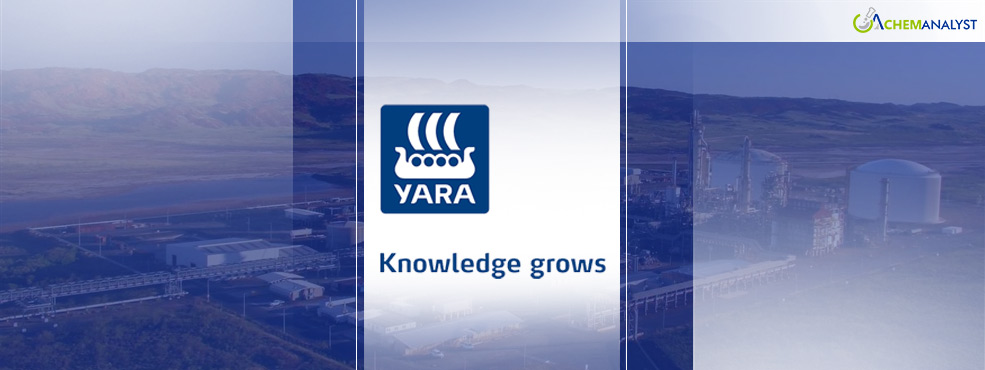Welcome To ChemAnalyst

Yara has made a groundbreaking step in Brazil by producing ammonia from renewable biomethane, marking the country's first production of ammonia using this method. The company has already delivered the first tonnes of this lower-carbon product to its customers. Biomethane, a purified biogas derived from sugarcane waste, can replace fossil natural gas seamlessly, reducing greenhouse gas emissions by up to 75%. This achievement highlights Yara's commitment to decarbonizing both the food and industrial value chains, aligning with its goal of achieving carbon neutrality by 2050.
Marcelo Altieri, President of Yara Brazil, emphasized the significance of this development, stating, "This is a significant step in building renewable-based value chains across sectors and industries, from food and mining to on-and off-shore transport." For the agribusiness sector, the impact is particularly notable. By integrating lower-carbon fertilizers into its agronomic expertise, Yara aims to offer farmers enhanced value while opening new markets and revenue streams. In coffee farming alone, the company anticipates a reduction of up to 40% in the carbon footprint of harvested beans.
Yara's Industrial Complex in Cubatão, the largest natural gas consumer in São Paulo and Brazil's leading ammonia producer, is now fully equipped to operate with biomethane. Daniel Hubner, Senior Vice President at Yara Industrial Solutions, noted, "Cubatão is now positioned to lead Brazil’s energy transition." He further explained that biomethane allows Brazil to transform its abundant organic waste into a valuable resource, accelerating the shift towards a fair, efficient, and sustainable energy model. Hubner also stressed the need for collaboration, stating that Brazil has the potential to become a global leader in this field. He advocated for scaling renewable solutions, creating incentives, and fostering public-private partnerships to ensure the success and widespread impact of these innovations.
Looking ahead, Yara plans to expand its product portfolio to include solutions that utilize carbon capture and storage (CCS). This initiative reinforces the company's leadership in driving industrial decarbonization and supporting sustainable growth, both in Brazil and globally. As Yara approaches its 120th anniversary next year, its ongoing mission to feed the world while protecting the planet continues to shape its strategy and innovations.
Yara's mission is to responsibly nourish the world while safeguarding the planet. The company follows a strategy of sustainable value growth by minimizing emissions in crop nutrition production and developing low-emission energy solutions. Yara is dedicated to fostering a nature-positive food future that generates value for customers, shareholders, and society, while advancing a more sustainable food value chain.
We use cookies to deliver the best possible experience on our website. To learn more, visit our Privacy Policy. By continuing to use this site or by closing this box, you consent to our use of cookies. More info.
